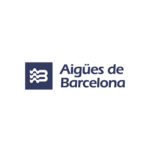How can technology help to increase the permeability of the soils in Sant Joan Despí?
The climate crisis, rising temperatures and the increasingly frequent heat waves in cities have adverse effects on people’s health and on the increase of energy demand, especially affecting the most vulnerable groups. Faced with these effects of climate change, cities have an important role to play as centres of innovation to promote resilience, sustainability, and the conscious use of natural resources, such as water. In this context, the lack of infiltration capacity of the soil in urban areas is a problem that affects the water cycle, leads to a lack of rainwater harvesting, a loss of the regenerative capacity of aquifers and the risk of flooding.
The main cause of the lack of soil permeability is the use of non-porous materials such as asphalt and non-draining pavements which, although involving less maintenance, cause the so-called heat island effect, making it impossible to recharge aquifers and increasing the risk of flooding. Moreover, they are also incompatible with trees and vegetation. In this sense, the challenge is to seek innovative technological solutions to increase the permeability of the soils in Sant Joan Despí, specifically in the city centre, which accounts for 48% of the population of the municipality and is the area that has historically suffered the effects of flooding and where the rainwater collectors are located. In this way, the aim is to make use of rainwater, facilitate the recharge of aquifers and reduce the risk of flooding.
Sant Joan Despí approved the Climate Emergency and Ecological Transition Plan at the Municipal Plenary in February, with a time horizon of 2023 to 2030, and it is therefore a priority to make progress on this issue and find innovative solutions to be implemented in the short term. The municipality’s previous experiences, including the use of different materials on footpaths in green areas, have shown that there is room for improvement in the agility and effectiveness of the response, as well as in the impact measurement.
The project contributes to the following SDGs:
SDG 6 – CLEAN WATER AND SANITATION / SDG 9 – INDUSTRY, INNOVATION AND INFRASTRUCTURE



Key Dates
How to participate?
Find out how the call works and present your proposal.
